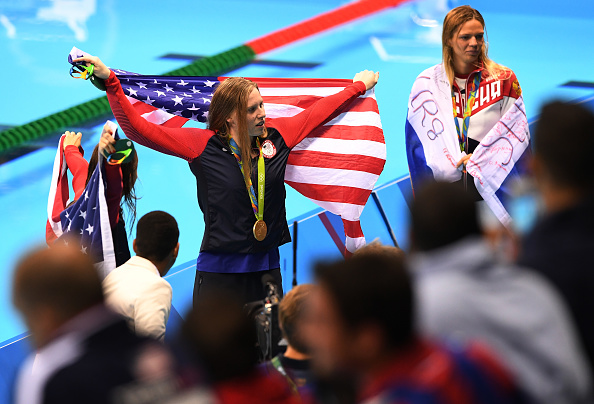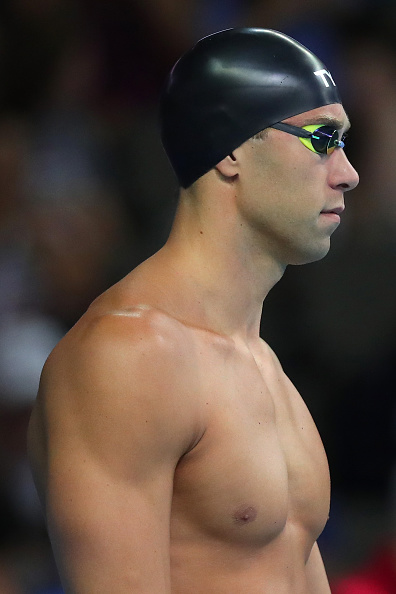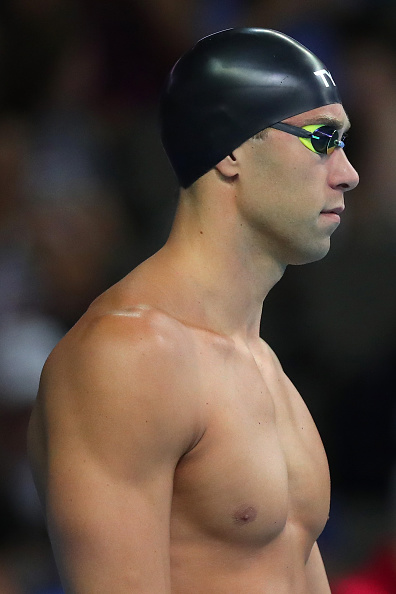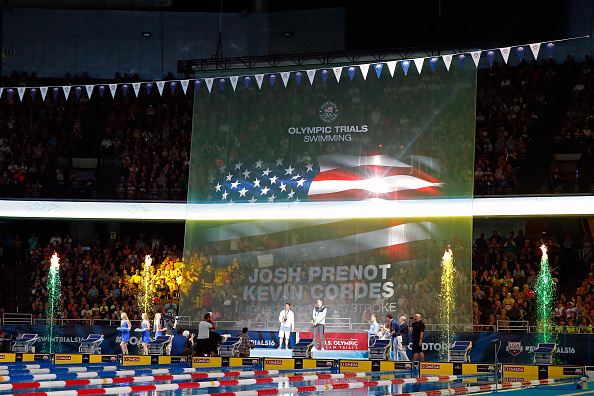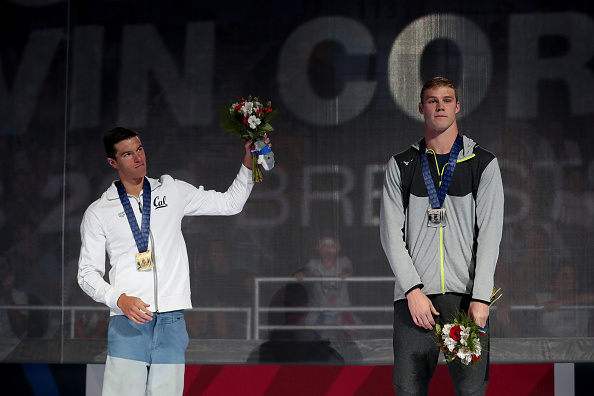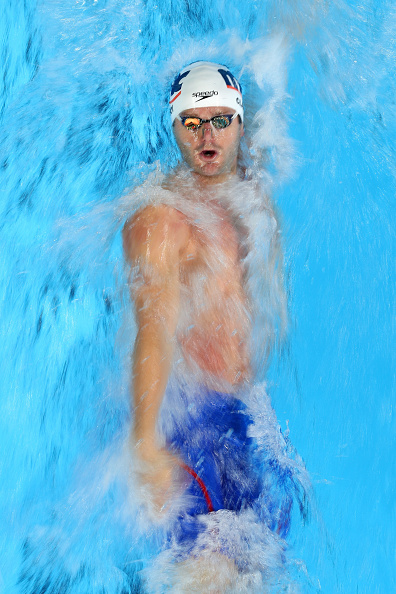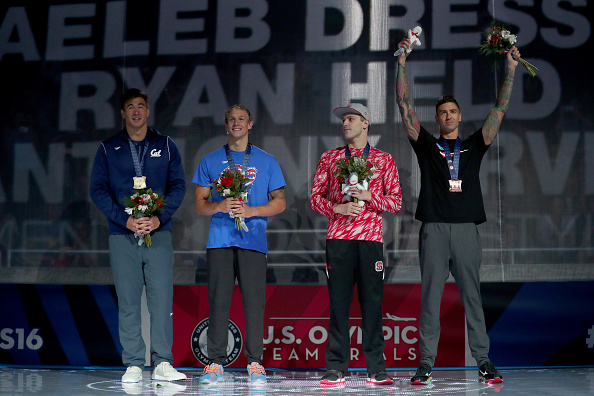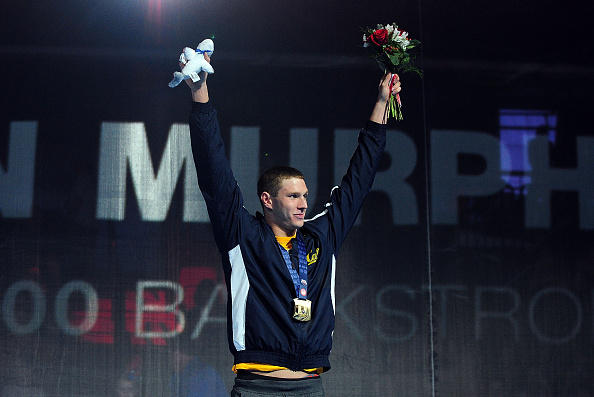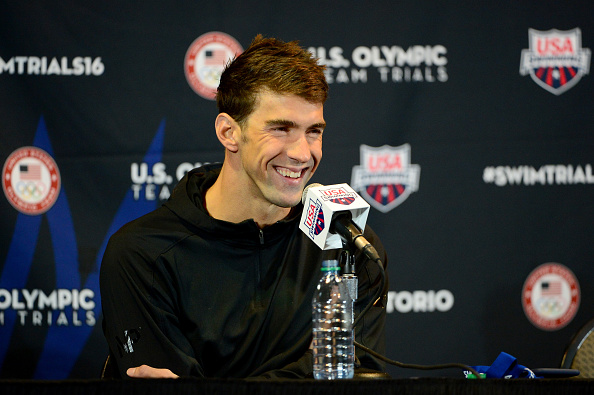OMAHA — Brendan Hansen, the breaststroke standout and six-time Olympic medalist, is here at the 2016 U.S. swim Trials as a poolside announcer. Before the action got underway Wednesday, he lined up four teen-agers and asked: who are you here to see?
One by one, on the big screen, here were the answers: Michael Phelps. And Katie Ledecky.
No duh.
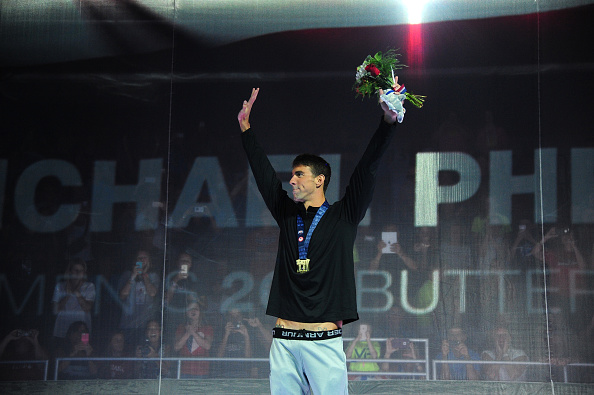
The U.S. swim team that goes to Rio will be filled with a big chunk of names new to most people who know swimming only on NBC, and every four years:
Newcomers: Olivia Smoliga. Lilly King. Townley Haas. And more, among them Kevin Cordes, already the winner of the men’s 100 breaststroke who flirted with the world record in the 200 breast Wednesday, winning his semifinal in 2:07.81.
To be clear, there will be a few familiar faces, too: Ryan Lochte, who has qualified at the least for the relays. Allison Schmitt, the women’s 200 free gold medalist in London, qualified Wednesday for the relays. Assuming all goes to plan in Thursday’s final, expect to see Nathan Adrian, who rocked a 47.91, second-best time in the world in 2016 in the semifinal of the men’s 100.
But let’s face it: the headliners are Phelps and Ledecky.
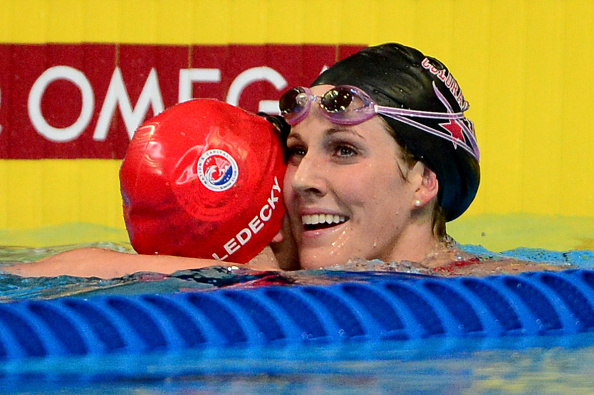
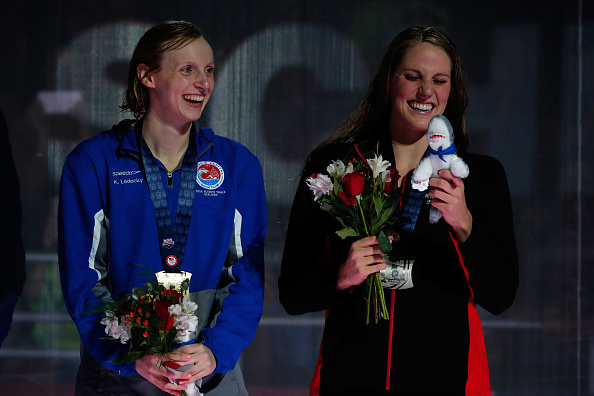
And that’s with a full measure of respect for Missy Franklin, who pulled off one of the gutsiest swims of her career Wednesday to grab the No. 2 spot in the women’s 200 free, behind Ledecky.
Phelps — as he has been for so long — is simply America’s best. So, too, Ledecky.
In winning the men’s 200 butterfly Wednesday in 1:54.84, Phelps became the first male swimmer to qualify for a fifth straight Olympic team. He turns 31 on Thursday. His first Games, in Sydney in 2000, came when he was just 15. He finished fifth there in the 200 fly. That was the start of the string of all the superlatives since — the 22 Olympic medals, 18 gold, the eight-for-eight in Beijing.
After looking up at the end of Wednesday’s 200 to see his time, Phelps held up all five fingers, signaling Olympics No. 5. Tom Shields took second, in 1:55.81.
Phelps’ 7-week-old son, Boomer, was poolside, with mom Nicole Johnson. For the occasion, Boomer wore noise-canceling headphones dressed up with American flags. After the medal ceremony, Phelps walked around the pool to the section where they were sitting; Nicole, carrying the baby, came down some stairs; father tenderly kissed his baby boy.
Phelps’ longtime coach and mentor, Bob Bowman, said he shed a few tears — maybe the first time ever at such ceremonies — thinking of all the turbulent waters he, Phelps and Schmitt, who is like a sister to Phelps, have navigated.
“It means we have been through a hell of a lot,” Bowman said. “A hell of a lot.”
Before the race, Zach Harting, in Lane 7, came out dressed as Batman. He was duly announced as "The Dark Knight."
Phelps, over in Lane 4, played -- what else -- Superman. As usual at the pool, with little fanfare. He simply wrote another fine line in the Phelps record book.
Phelps led the race wire to wire. At 150 meters, just as he had wanted, he was at 1:22 -- specifically, 1:22.94 -- with a world-record 1:50 a possibility. That last 50, though, he would say later, “the piano fell pretty hard.” He got home in 31.9; five guys in the race, including Harting, swam the final 50 between 30 and 31 seconds. Shields, trying to hang with Phelps, managed his final 50 in 32.08.
A further comparison: in 2015, Phelps went 1:52.94. That was his fastest time in the 200 fly since 2009, when he set the world record, 1:51.51.
For the record: Batman finished seventh, 2.08 back.
Phelps being Phelps, that final 31.9 is likely to give him ample motivation between now and Rio: "... I don't know what happened the last 50. I was just praying to hit the wall first or second."
Bowman: "It isn't 50. It was like the last 20."
Too, there now awaits the challenge of racing South Africa’s Chad le Clos, who out-touched Phelps for gold in the London 200 fly. Phelps said, “I didn’t have the chance to race him last summer. I am looking forward to racing him this summer.”
Phelps still has the 200 IM and 100 fly to go.
“Now,” he told the crowd a few moments after the race in a pool-deck interview, “let’s have some fun over these next couple events and see what happens.”
In winning the women’s 200 freestyle in 1:54.88, Ledecky made emphatically clear what has been apparent to swim nerds since last summer’s world championships in Kazan, Russia: she is not just the best women’s swimmer in the United States but the world.
No one else is really close.
Four years ago, when she was 15, Ledecky won the 800 in London. Since, she has come to dominate women’s swimming at every race from 200 up: 200, 400, 800 and the 1500, what swimmers call the mile.
Ledecky qualified earlier here for the 400. The 800 prelims are Friday, finals Saturday. There is no women’s 1500 at the Olympics. Here in Omaha, she will also be swimming the 100 free; the prelims are Thursday morning.
At 150 meters Wednesday, Ledecky and Franklin were 1-2. Ledecky then went 29.54 over the final 50. Franklin: 30.3.
Franklin touched in 1:56.18.
That amounts to a full 1.3 seconds behind Ledecky. In a race like the 200 free, that is a lot.
The announcement that Ledecky was now the racer to beat took place at last summer’s worlds in far-away Russia, when Ledecky dropped down to the 200 — after dominating the 400, 800 and 1500 — and won that, too.
The race Wednesday merely proved the next chapter: every single one of Ledecky's four splits proved faster than Franklin's.
In relating these facts, no one should infer — because none is implied — anything but appreciation for Franklin, who finished seventh Tuesday in the 100 back, an event she used to dominate.
No matter the situation, Franklin comports herself with respect and grace for herself and family, the sport and about everyone she meets.
She is a class act, and the U.S. team is all the better for having her now on the way to Rio.
As her longtime coach, Todd Schmitz, would tweet late Wednesday:
https://twitter.com/starstodd/status/748333283424018433
She would say after the race, “You know, I think I’ve just been thinking about it a lot differently, you know and I realized that my job here, it’s not to make the Olympic team. It’s not to defend anything. It’s to swim well. That’s always what my job has been, and that’s what I need to continue to do, so it’s me trying to work through and deal with this kind of pressure that I’ve never really dealt with before.
“I think as we just saw — I’m really starting to figure that out to myself.”
Because Ledecky has opted to retain her amateur status — she will be a freshman at Stanford after the Rio Olympics — she simply is not the crossover star that Franklin has become, with multiple big-name sponsors proving eager over the past couple years to attach their campaigns to the smiling, happy, heartfelt Missy brand.
“It’s unbelievable,” Franklin said when asked about Ledecky, “and you look at her and she has that wide range of distances, too, but I think all of us know that if anyone can do it, Katie Ledecky can do it. And to be a part of that and to now know that I get to be on another relay with her and swim another individual event with her, it’s such an honor.
“She makes [me] a better athlete, a better teammate, a better person, and I have 110 percent faith she can do whatever she sets her mind to.”
The thing is, Ledecky is just as super-genuine as Franklin.
Ledecky said of Franklin, “I told her after the race she’s one tough cookie, and she got the job done tonight. That [200] race is for real, and there’s more to come from her.”
The Rio stage means the world gets its chance to catch up with Franklin, for sure. But, really, to fully appreciate Ledecky. And one final chance to appreciate Phelps.
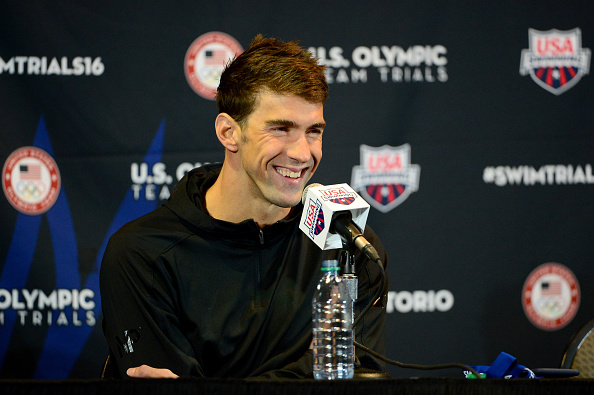
Phelps, as he said Wednesday, is — for the first time after being in the public glare for 16 years — not just acknowledging but showing some vulnerability.
Asked if he would remember the 15-year-old who would qualify for Sydney, Phelps said, “I remember him. I definitely remember him.”
Bowman added, “I remember him. At a press conference like this, the question was, do you have a girlfriend and have you kissed her yet? So we have kind of progressed with the subject matter over 16 years.”
Not so clear is how the 15-year-old Phelps would relate to the man who turns 31 on Thursday. On his last day of being 30, Phelps said, “I’m embracing the moment and taking it one step at a time.”
Showing that sort of vulnerability, however, is not the same as being soft on the blocks. Hardly.
The greats, in sum, process pressure and fear differently than the rest of us. For Ledecky and for Phelps in particular, each race makes for an opportunity to see how good he or she can be.
The more-reflective 30-year-old Phelps gave a mini-dissertation here this week on the subject. He said, “Like this guy asked me today, ‘What do you think about before you swim?’ And I was like, ‘Nothing.’ And he was like, ‘Are you kidding?’ I’m like, ‘No, I don’t think about anything.’ But I’ve told a couple swimmers, just turn your mind off. You’ve done the work to get here, so it’s just time to get in the water and let it loose.”





